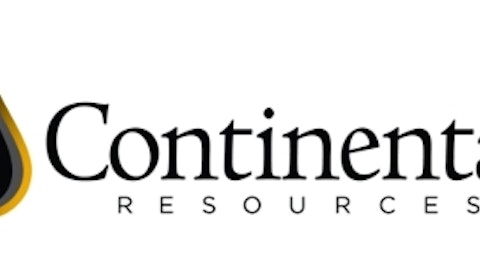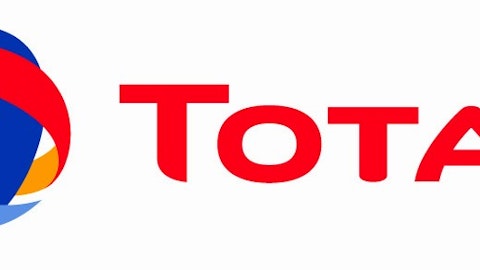Last Thursday, Apache Corporation (NYSE:APA), the Houston-based oil and gas company, announced that it will sell a third of its Egyptian oil and gas assets to Chinese oil giant Sinopec Shanghai Petrochemical Co. (ADR) (NYSE:SHI). Markets cheered the decision and sent shares of Apache soaring nearly 9% the following day. Let’s take a closer look at whether the gain was warranted and what impact the transaction might have on Apache and its shareholders going forward.
Apache-Sinopec deal
As part of the agreement, which is subject to approval by the Egyptian government and is expected to close in the fourth quarter, Apache Corporation (NYSE:APA) will receive $3.1 billion in cash from Sinopec Shanghai Petrochemical Co. (ADR) (NYSE:SHI) in exchange for a 33% stake in Apache’s Egyptian oil and gas assets. At first glance, the metrics of the deal appear quite favorable, especially given the harsh social and political backdrop it was negotiated under.

The price Apache Corporation (NYSE:APA) paid values its Egypt oil and gas business at more than $9 billion. This implied valuation is significantly higher than previous estimates by analysts at Citigroup and Simmons & Co., who valued Apache’s Egypt business at approximately $8 billion and $7.7 billion, respectively. Furthermore, given that Apache’s Egyptian operations account for only a fifth of its total oil and gas production, the price Sinopec Shanghai Petrochemical Co. (ADR) (NYSE:SHI) paid seems all the more reasonable.
Why the deal is positive for Apache
The deal is also beneficial from the standpoint that it helps diversify Apache Corporation (NYSE:APA)’s risk by reducing its exposure to Egypt, which is one of the main reasons the company’s stock performance has lagged its peers. Following the deal, the share of Apache’s oil and gas production from Egypt is expected to fall to 15%, down from roughly 25% in 2010 and about 20% currently.
The deal is also beneficial from the standpoint that it will provide Apache Corporation (NYSE:APA) with additional cash to pay down debt, repurchase shares, and help it develop its onshore North American oil plays, especially its so-called “growth core” assets in Texas and Oklahoma that are expected to provide much of its output growth in coming years.
This year, Apache plans to allocate $4 billion of its $10.5 billion capital budget toward its onshore U.S. assets, which it hopes will generate production growth in excess of 20%. Apache is just one of several U.S.-based energy companies that are divesting assets to pay down debt and concentrate their efforts on North America.
For instance, Devon Energy Corp (NYSE:DVN) sold off all its foreign assets in the Gulf of Mexico, Brazil, and Azerbaijan to BP plc (ADR) (NYSE:BP) back in 2010 and is allocating the majority of its capital this year to onshore liquids-rich plays, especially the Permian Basin. Similarly, Chesapeake Energy Corporation (NYSE:CHK) has worked to rid itself of non-core assets over the past year and a half and is determined to grow liquids production from key U.S. plays such as the Eagle Ford and the Greater Anadarko Basin.
The bottom line
It’s clear that Apache recognizes that its presence in Egypt is a major concern for shareholders. In the second-quarter conference call, CEO Steve Farris reassured investors that the company is working on finding “a way to validate the value of Egypt for our shareholders.”
While Apache still has substantial exposure to Egypt, the recent transaction with Sinopec Shanghai Petrochemical Co. (ADR) (NYSE:SHI) certainly appears to be a well-executed step in accomplishing this objective. It also shows that the company is determined to successfully complete its asset sale strategy, having also recently sold $3.75 billion worth of Gulf of Mexico assets to private-equity firm Riverstone Holdings LLC during the second quarter.
The article Why Sinopec Deal Bodes Well for Apache originally appeared on Fool.com and is written by Arjun Sreekumar.
Fool contributor Arjun Sreekumar owns shares of Chesapeake Energy and Devon Energy. The Motley Fool owns shares of Devon Energy.
Copyright © 1995 – 2013 The Motley Fool, LLC. All rights reserved. The Motley Fool has a disclosure policy.





